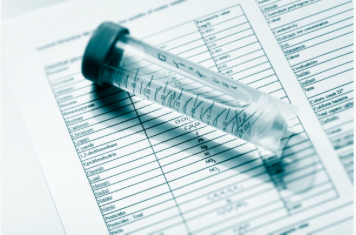Pros & cons and when a laboratory test is indispensable
Small test tubes, white lab coats, and a sterile atmosphere. Do you have such a picture in your head when you hear “water test”? Analysis in the laboratory is the most reliable way to test water. Even if there are now numerous do-it-yourself tests, these cannot replace a laboratory by a long way.
Reliable water analyzes from the laboratory
The main reason to have a water test done in the laboratory is probably reliability. A laboratory has professional equipment, trained staff and modern analysis methods. Self-tests cannot keep up with that. There are also some parameters that can only be precisely determined in the laboratory. This includes mercury, for example, but even with bacteria, an accurate assessment of the situation is only possible with a laboratory test. Some self-tests show whether there are Coli bacteria or Legionella in the water, for example, but they cannot determine the number of bacteria. In order to be able to make a meaningful assessment of the health risk, a laboratory test is required after such a test.
In principle there are two ways of implementation. Either you take the sample yourself, or an employee of the test institute will come over to you. Sampling by the institute is more likely to occur when checking house wells. Such analyzes are in no way inferior to studies by large water supply companies in terms of quality. But even if you take the sample yourself, you can count on exact results – at least as long as you follow the instructions.
A great advantage of a laboratory test is that you get a consumer-friendly description of the results. In contrast to this, the color scale or color changes are often difficult to interpret in self-tests. You will not be left alone either: If you have any questions, there is a hotline or an email address that you can contact. So you will definitely understand your test result.
Indispensable: it is essential to have the water from the house well tested in the laboratory
A tenth of the population supplies themselves with water from a domestic well. Of course, this has many advantages, but it also entails a certain responsibility – you are solely responsible for checking the water quality. The recommendation is to have your own well examined extensively at least once a year. Impurities are not necessarily noticeable. Studies have found that almost half of home wells are of no drinking water quality. Only those who conscientiously have the water examined in the laboratory can play it safe. After all, bacteria, foreign substances and impurities have no place in drinking water!
Quality has its price
If you want a comprehensive analysis of your tap water, you have to dig a little deeper into your pocket. At least if you compare the prices with those of self-tests. The prices for laboratory analyzes start at around 50 euros. If you want a comprehensive analysis of your water, you should expect at least 150 euros. In addition, there may be postage fees for transporting the water sample to the laboratory.
Once the sample has arrived in the laboratory, it is important to be patient. It will take a few weeks before you get an evaluation. With a self-test, however, you will see a result after a few minutes. Nevertheless, the laboratory test is also subject to possible inaccuracies – for example if something goes wrong during transport. Fluctuations are much less likely than with self-tests.
Laboratory tests for legal matters
Lead in drinking water – a horror idea. According to Aqua Quality Austria (AQA), more than 20% of the water samples exceeded the limit values for lead and nickel. There are still a lot of lead pipes, especially in Vienna, and they are generally a big problem in old buildings. A legal question arises here. In principle, it is the landlord’s responsibility to ensure that apartments do not pose a health risk. In Germany, pipes have to be replaced if they exceed a limit value. If you want to prove this with a water test, only laboratory tests will be accepted. But be sure to pay attention to the information on the seller’s website! Some explicitly state that their tests cannot be used in legal matters.
In Austria the legal situation is not so clear. In 2004, it was decided in one case that it is reasonable for the tenant to let the water run off for a minute in order to reduce the lead concentration. A new lead limit could tip that. Whether the landlord has to replace pipes is therefore not legally specified. But if you want to give it a try and put pressure on your landlord, be sure to carry out a laboratory test! You won’t get very far with a self-test.



